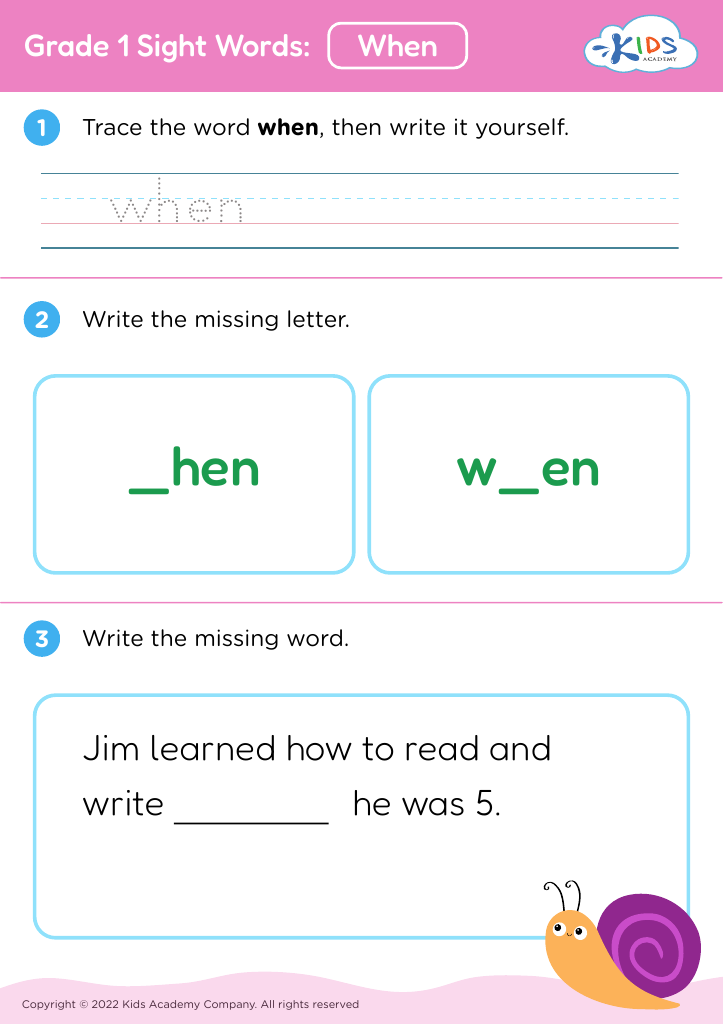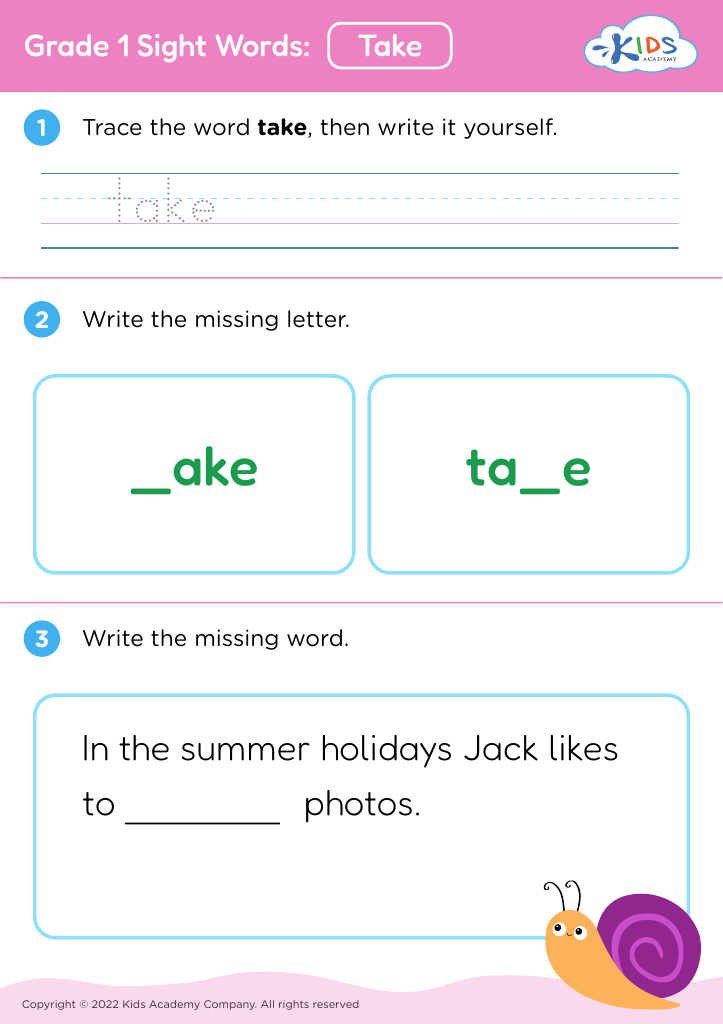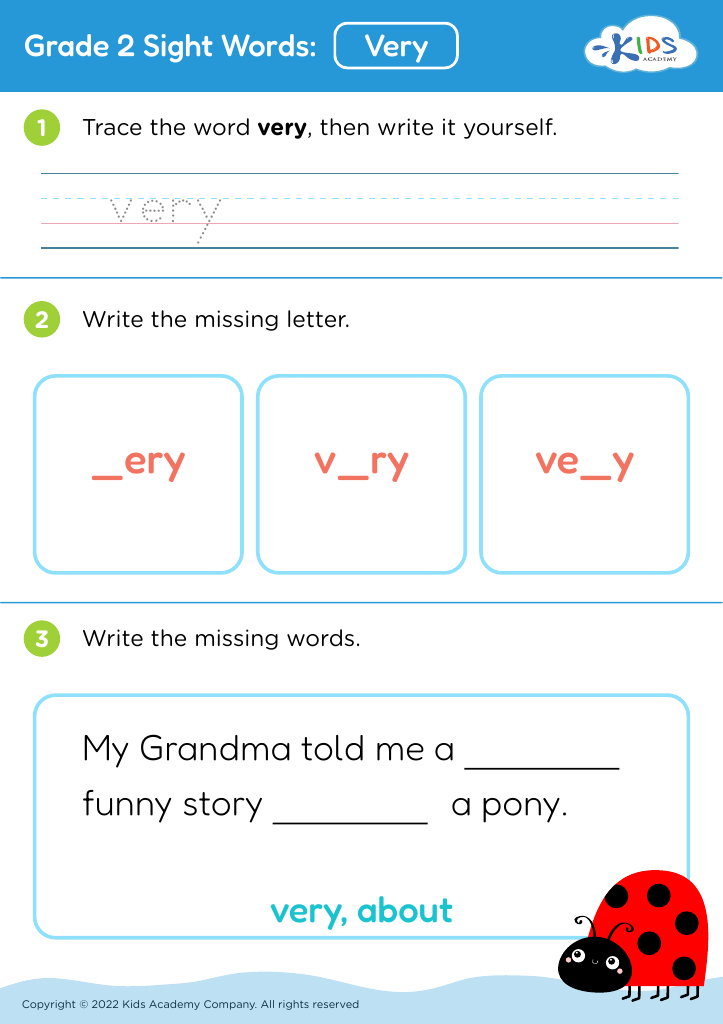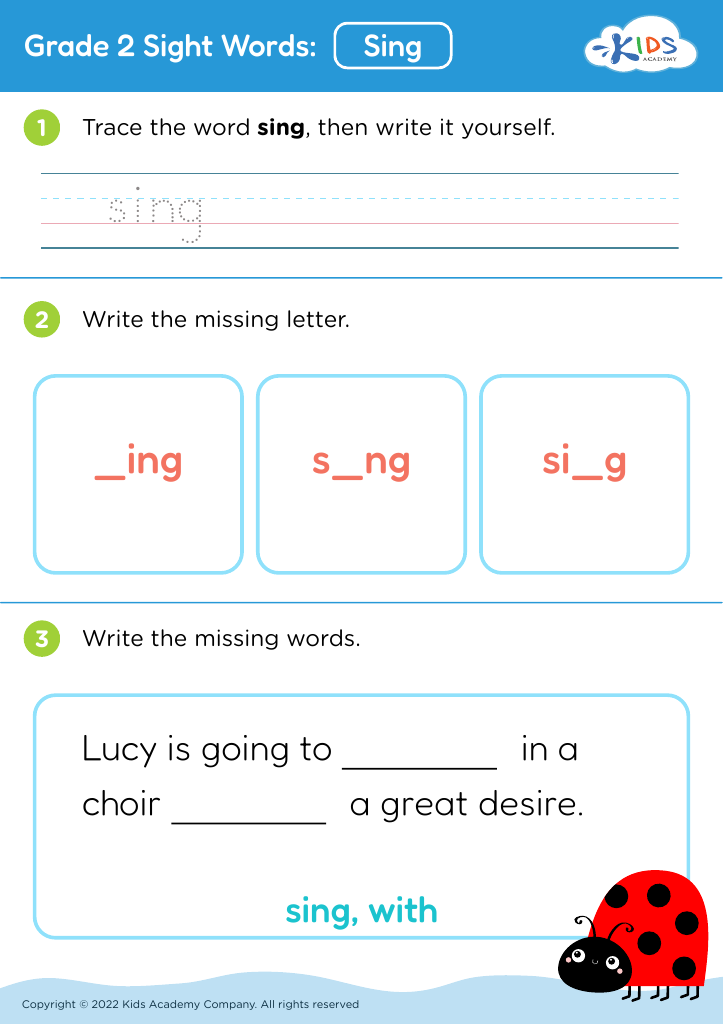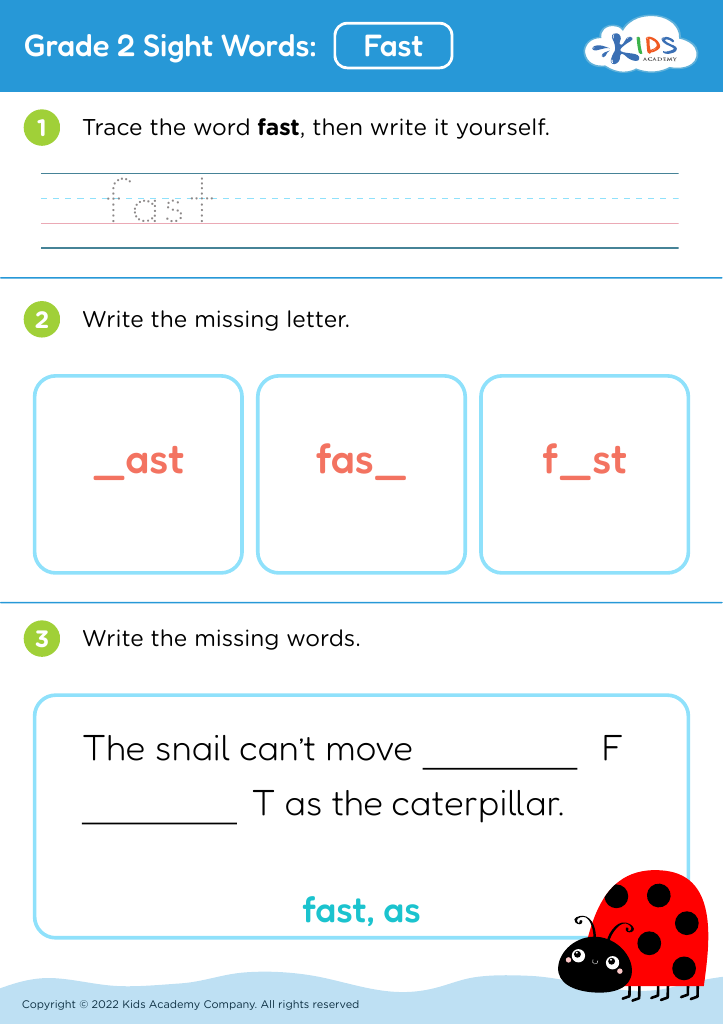Addition Practice Building Vocabulary Worksheets for 7-Year-Olds
5 filtered results
-
From - To
Enhance your 7-year-old's learning with our engaging Addition Practice Building Vocabulary Worksheets! Designed to promote mathematical fluency while enriching vocabulary skills, these worksheets offer a fun and interactive way for children to master addition concepts. Each worksheet features colorful illustrations and easy-to-follow instructions that cater to young learners. As students solve addition problems, they will simultaneously encounter new words, improving their language comprehension and confidence. Perfect for use at home or in the classroom, these worksheets help build essential skills that support overall academic success. Discover the joy of learning through play, and watch your child thrive in addition and vocabulary mastery!
Parents and teachers play a crucial role in a child's development, and focusing on Addition Practice while building vocabulary for 7-year-olds is vital for several reasons. At this age, children are not only learning basic mathematical concepts but also enhancing their language skills. Proficiency in addition forms a foundation for more complex math topics like subtraction, multiplication, and division. By incorporating vocabulary building into addition practice, children can better understand mathematical language, fostering their ability to analyze and solve problems effectively.
Additionally, a solid vocabulary helps children articulate mathematical concepts, ask questions, and explain their reasoning, important skills for their overall cognitive development. When children describe their thought processes or engage in discussions about numbers, they are active participants in their learning, which enhances retention and comprehension.
Furthermore, integrating vocabulary into math practice helps students develop critical thinking skills. Terms like "sum," "plus," "equals," and "greater than" can enrich their comprehension of mathematical concepts. In essence, intertwining addition practice with vocabulary building not only strengthens a child's mathematical understanding but also empowers them to communicate ideas clearly. Consequently, this holistic approach nurtures well-rounded learners, ultimately leading to greater academic success.
